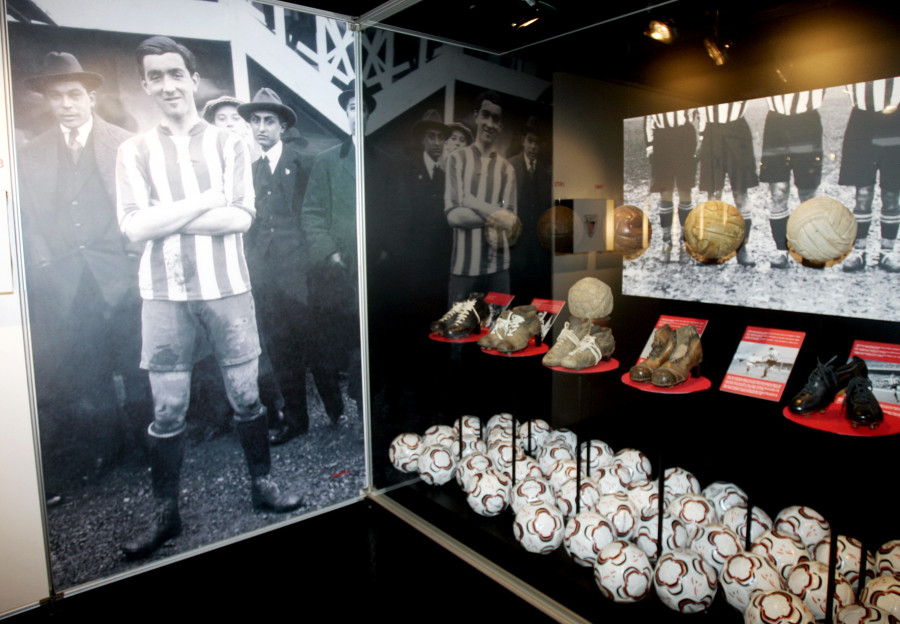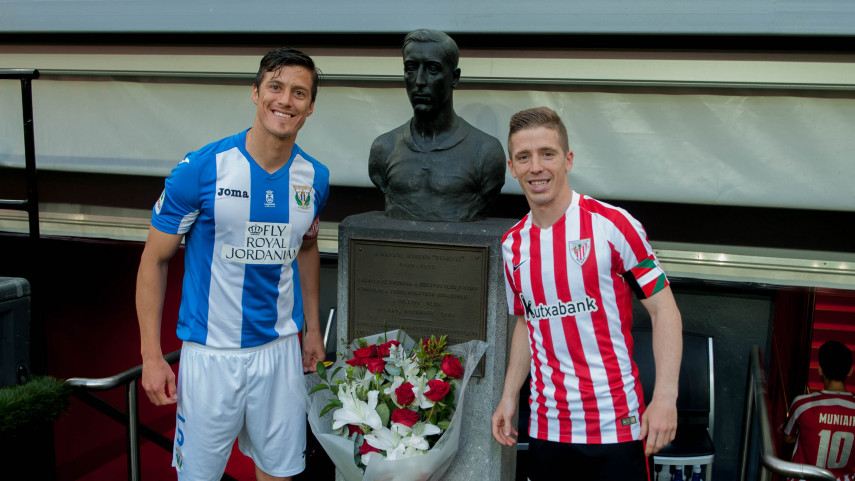News
LUN 15.05.2017
Much football terminology has been compiled in the DEL (Diccionario de la lengua española, the authoritative dictionary of the Spanish language). Some of these terms have previously been explored on this website, including the origins of the word 'derby.' It's not uncommon for eponyms to be added to the dictionary – examples include quijote, donjuan, rebeca, pamela, narciso, guillotina and cicerone. The domain of football is also responsible for one of the eponyms featured in the dictionary – pichichi, which is defined as:
1. In football, the player who scores the highest number of goals during a Spanish league season, and, by extension, the top scorer.
2. In football, the award given to the top scorer.
In 1953, the sports daily Marca created the award for the top scorer in a league season. They chose the name Pichichi, the nickname of Rafael Moreno Aranzadi, one of the most iconic players in the history of Spanish football. The striker was Athletic Club's main marksman in the 1910s and 20s, and was responsible for the first-ever goal scored at the old San Mames, in the stadium's opening match against Racing de Irun on 21 August 1913.
Pichichi, a nephew of Spanish novelist, poet, playwright and philosopher Miguel de Unamuno, was born in Bilbao in 1892, and from an early age showed sporting promise. As a boy, he used to score for fun between goals improvised out of sticks and jumpers, outwitting the older kids in the squares of the old town of Bilbao, which is where his endearing nickname originates. He started out at Athletic when he was 19 years old, already donning the white bandana that became synonymous with him throughout his playing days. Ten years and 78 goals later, he hung up his bandana and boots. In 1922, the year following his retirement, Pichichi passed away after suffering a bout of typhoid fever, having not even reached his 30th birthday. It is thought that the fever was brought on after he ate some gone-off oysters.

As we know, myths are created from a mix of anecdotes and feats that go down in popular mythology, and that history, and in this case football history, treasures dearly. Pichichi was one of these valiant heroes, quick-witted, unselfish and cheeky, a figure who will always be part of Spanish footballing legend.
He was Athletic's first ever player to turn professional, that's to say the first to earn a living playing football, and starred in the early years of the Spanish national team, with whom he won a silver medal at the 1920 Summer Olympics in Antwerp. He also worked as a referee for a year following his retirement, and curiously, made his officiating debut at San Mames. People say that he never trained and that he overcame his physical flaws – such shortcomings meant he was rejected from military service – by his sheer intelligence and guile, picked up from his days playing in the street as a child. He even conspired with some of his friends to stage a pitch invasion in a game between Athletic and neighbours Arenas de Getxo, in order to get the match abandoned, as they believed that the away side were winning in an unjust manner.
Pichichi has a street named after him in Bilbao, next to San Mames itself – you couldn't imagine a more fitting location. It's safe to say that he would've been very happy to know that the first winner of the trophy bearing his name was another of Athletic's legends – Telmo Zarra. Throughout history, many players have had streets, tournaments and stadiums adorned with their names, but since 1926 Rafael Moreno Aranzadi has been receiving the best tribute any footballer in the world could wish for. Every away team captain, when visiting the stadium for the first time, is accompanied by the Athletic skipper to leave a bouquet of flowers by Pichichi's bust, which today is situated in the best place possible: at the exit of the tunnel, where the game really starts for the players, where they begin to envisage their dreams, where the atmosphere of football is palpable.
© LALIGA - 2017
